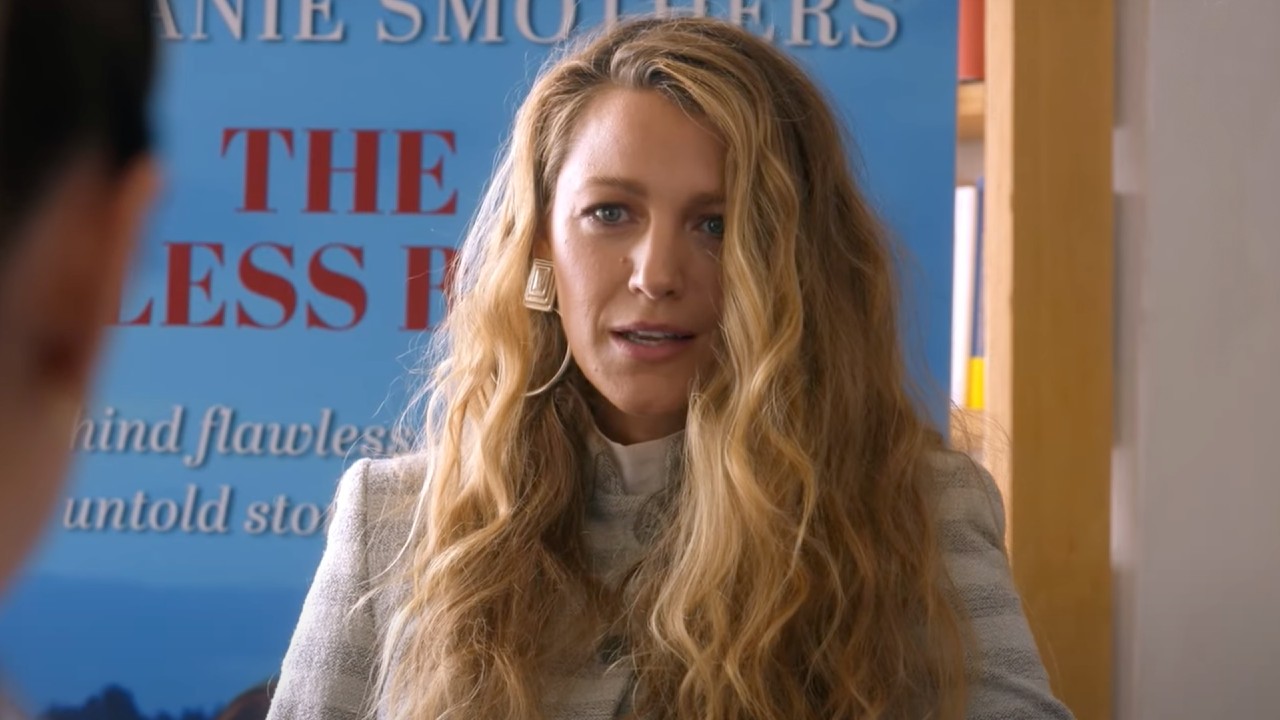Mind Games Review: Christian Slater And Steve Zahn Are A Winning Combination

Kyle Killen's proven to have strong starters when it comes to TV series, and yet neither Lone Star nor Awake managed to last beyond its first season. Will Mind Games have better luck? From the start, it has all the makings of a great series, complete with a solid cast and a premise that should lend itself well to the trending format of procedural series with serialized elements. The true hook in the drama is in the way it takes a closer look at human nature and how people might be influenced under the right circumstances. Add in the flawed lead characters -- two brothers trying to make a business out of influence and manipulation -- and Mind Games should be a winner. Looking at the success of shows like Scandal and Lie to Me, Mind Games has a chance. Or at the very least, it deserves one.
It seems necessary to point out that basic premise of both Lie to Me and Scandal share some loose connections with Mind Games. While Scandal focuses on a group of "fixers" who use their legal smarts to help Washington DC's elite deal with publicity issues, Lie To Me's focus is on a psychologist's abilities to use body language and other behaviors to find the truth in the situation, usually as it relates to crimes. Take both concepts, mash them together and add a lighter tone and you'll get a bit closer to where Mind Games lives, as it emphasizes a unique kind of business merged with a deep understanding of human behavior and psychology.
The series stars Steve Zahn as a former psych professors whose bipolar behavioral issues make him a loose canon. He's a genius when it comes to understanding how people operate, which proves useful in the business he and his brother are trying to operate. Clark's brother Ross (Christian Slater) is more of a con-man/criminal type, who's making efforts to turn his and his brothers' skills at human behavior and manipulation into a business that helps people fix their problems, make their dreams come true or generally get what they want through the power of influence. If someone tells you know, these guys will find a way to get them to tell you yes. It's that simple... and it's not simple at all.
The series premiere begins with Clark and Ross pitching their business to a potential client, but it becomes evident early on that Clark has trouble controlling his enthusiasm. For all his knowledge of human behavior, he's not always tuned into to his own, and his refusal to medicate makes him unpredictable, to say the least. Zahn plays this really well, as Clark is funny at times and simply unnerving to watch at others. Slater's Ross is more reserved but conniving, and it's evident that his issues are less about monitoring his own behavior as they are about ethical boundaries. Ross' criminal past indicates that he's willing to cross the line to reach a goal, even if it means outright deceiving people. So there's a balance that needs to be found here between these two brothers if their business is going to work as a legitimate operation, and we get a better demonstration of that as they attempt to help a sick kid get the care he's being denied. Clark and Ross hope that the pro bono case will give them a bit more exposure, which ideally will lead to helping them catch some bigger fish. The fish that can actually pay.
Rounding out the cast and the team is Cedric Sanders, who plays Latrell, a guy Ross recruited due to his talent for business. Gregory Marcel plays Miles Hood, a behavioral psychology grad student with a trust fund. Jaime Ray Newman plays Sam, an ex-con with the ability to read people and improvise. And Megalyn Echikunwoke plays Megan, the actress of the group, whose abilities at performing make her a crucial asset when Clark and Ross need to stage and manipulate.
ABC gave us the first and fifth episode to screen, and there are some notable disruptions in continuity there, largely involving the introduction to Sam and the absence of two characters who are introduced in the pilot but don't appear in Episode 5. I'm assuming these are the result of a bit of post-pilot concept tweaking and will hopefully be explained in the episodes between 1 and 5. In the meantime, the benefit of getting to see Episode 5 is that it demonstrates the presumed week-to-week format of this series once it settles in, which blends the characters personal situations and their efforts to turn con-artistry into a legitimate business. The fifth episode has Edwards and Associates dealing with a reporter who's looking to do a story on the business, and a young client who's trying to get his politician-father to change his mind about a gun-control law that involves a very personal, tragic back-story. "Personal" is key here, especially as it relates to Zahn's character. Clark's true passion is in the science and psychology of what they're doing with their clients, but his own personal issues factor in to his devotion to seeing a job through, sometimes to a fault.

I love Steve Zahn in pretty much everything, so a small part of my optimism about Mind Games may stem from my hope that he'll be sticking around the small screen. He proves to have some great screen chemistry with Christian Slater, who has delivered solid performances in shows like Breaking In and My Own Worst Enemy, but whose efforts to find a starring vehicle in television with lasting power haven't succeeded yet. The same for Kyle Killen, who gave us Awake, a series with so much potential, but was probably structured a bit more for the binge-watch viewership, given its complex set-up involving a man living in two different realities. In that respect, Mind Games seems perfectly structured for today's TV viewers, balancing the serialized element involving the lead characters' personal issues and histories, with the episodic client-of-the-week format, which will carry viewers from one episode to the next and hopefully always leave a window open through which new viewers can climb. Awake didn't have that. If you weren't in it from the start, chances are you weren't going to get caught up, and that can be a big problem for new series in trying to build a viewership.
CINEMABLEND NEWSLETTER
Your Daily Blend of Entertainment News
Mind Games's first episode gives us a glimmer of the concept's potential and an eyeful of its on-screen talent. Zahn's Clark is particularly likable, quirks and all, but he also manages to capture the serious side of Clark's behavioral difficulties with moments that border on uncomfortable to watch but succeed in adding depth to the character. That may prove to be the key here in keeping this drama on the right side of using a bipolar character for the purposes of humor and drama without overly exploiting a serious behavioral issue for comedic and dramatic reasons. Zahn's performance being what it is serves the series really well here, as I think he makes the character more of a would-be hero than anything else.
The drama's other challenge is creating believable scenarios -- or at the very least, scenarios of which we can suspend our disbelief -- that aren't schemes and all-out con jobs disguised as problem-solving. But finding that line with each case seems like it's one of drama's biggest and most interesting challenges, as it'll likely vary from one client's issue to the next.
The concept for this drama is brimming with potential, especially as it relates to the kinds of problems these guys will attempt to solve through the power of influence, persuasion and manipulation. People are complicated, and every good drama benefits from the complexities of human nature. Mind Games looks at human behavior head-on, using people's own nature as a direct source of conflict and ideally, entertainment, whether it be dramatic or humorous. With its intriguing premise, its strong cast and Killen among the executive producers, Mind Games has all the ingredients for a great series, blending humor and drama, cleverly solved predicaments, and adding in a layer of compassion and humanity that gives this series heart.
Mind Games faces the challenge in trying to build its momentum partway through the winter season (and in a timeslot that hasn't been doing so well for ABC), but it gets off to a good start, with definite potential to be more than good with time to grow. In the meantime, tonight's premiere is well worth a look.

Mind Games premieres Tuesday, February 25 at 10:00 p.m. on ABC.

Kelly put her life-long love of movies, TV and books to greater use when she joined CinemaBlend as a freelance TV news writer in 2006, and went on to serve as the site’s TV Editor before joining the staff full-time in 2011 and moving over to other roles at the site. At present, she’s an Assistant Managing Editor who spends much of her time brainstorming and editing features, analyzing site data, working with writers and editors on content planning and the workflow, and (of course) continuing to obsess over the best movies and TV shows (those that already exist, and the many on the way). She graduated from SUNY Cortland with BA in Communication Studies and a minor in Cinema Studies. When she isn't working, she's probably thinking about work, or reading (or listening to a book), and making sure her cats are living their absolute best feline lives.










